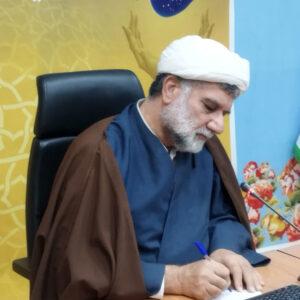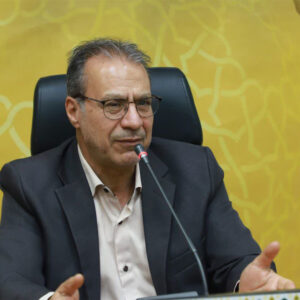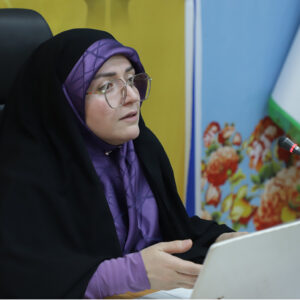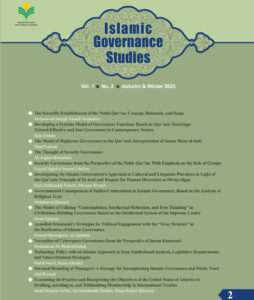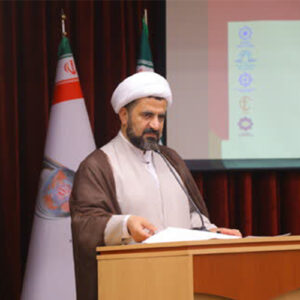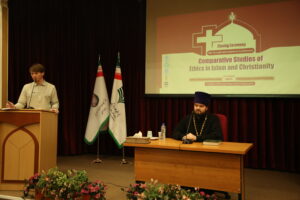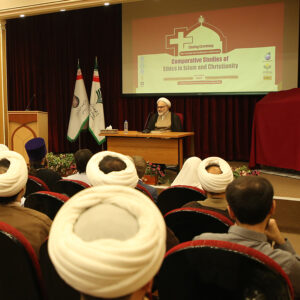The meeting on “Ethics of Governance in Islam and Christianity” was held on Monday, December 15, 2024.
The lecturers of the meeting were:
- Najaf Lakzaei, President of Islamic Sciences and Culture Academy (ISCA)
- Sunny Kokkaravalayil, The President of the Pontifical Institute for Oriental Studies, Italy
Summary of Sunny Kokkaravalayil’s Speech
An Analysis of “The Relationship Between King (Ruler) and Subjects in the Bible”
Dr. Sunny Kokkaravalayil began by expressing gratitude for the invitation to deliver this lecture. He then explored the concept of kingship in the Bible, highlighting how it is consistently framed around service and responsibility toward the subjects. He cited several Bible verses to illustrate these points, portraying the king or ruler as a servant of the people.
In 1 Samuel 8:10-18, the speaker discussed the Israelites’ request for a king, where God warns that a king should not exploit people selfishly. Instead, the king must create conditions where people can grow freely and achieve self-awareness.
In 1 Kings 3:5, 9, Solomon requests wisdom from God to guide his people rightly, demonstrating the importance of wisdom and careful leadership.
The speaker also discussed the portrayal of God as the “Good Father” and the “Righteous Judge” in Matthew 7:9-11 and Luke 18:1-8, emphasizing that leaders must embody these traits and always seek justice and the welfare of their people.
Finally, the speaker addressed the principle of the “common good” in the Bible, defined as creating conditions for all members of society to achieve their full potential. He stressed that leadership should aim to foster an environment conducive to this goal.
Conclusion: The speaker concluded that the Biblical image of a king is one of a servant striving for the common good and the comprehensive development of the community.
Summary of Prof. Najaf Lakzaei’s Speech
An Examination of the Role of the Ruler in the Ethics of Governance in Islam
Prof. Lakzaei analyzed the ruler’s duties from a religious perspective, specifically the responsibilities of prophets toward people and their adaptation to governance conditions. He showcased how these prophets addressed various societal challenges.
Prophet Joseph and Dealing with Economic Issues
Dr. Lakzaei first referred to Prophet Joseph (peace be upon him) as a model. As both a prophet and a ruler, Prophet Joseph faced the challenge of resolving Egypt’s economic problems during his rule. With immense wisdom and foresight, he devised economic policies to protect people’s lives and property during a famine and scarcity of resources. This underscores the importance of prioritizing economic concerns in Islamic governance, where resolving people’s material issues is paramount.
Prophet Moses and Liberation from Tyranny
He then referred to Prophet Moses (peace be upon him), whose initial mission was to address political issues and liberate the Israelites from Pharaoh’s tyranny. Through political struggle and wise leadership, Prophet Moses challenged dictatorship and, after resolving political problems, focused on religious propagation. This prioritization highlights the need to resolve political and social issues before addressing religious matters.
Prophet Solomon and Religious Reforms
In the era of Prophet Solomon (peace be upon him), Prof. Lakzaei noted that economic challenges were absent, enabling Prophet Solomon to focus on addressing the people’s religious needs. He propagated religion beyond his kingdom’s borders, including guiding a queen in a neighboring land who did not worship God. This example suggests that when economic issues are resolved, rulers should concentrate on religious and cultural reforms.
Prophet Jesus and Combating Corruption
During Prophet Jesus’ (peace be upon him) time, his priority was to combat social corruption and injustice. As a prophet, he focused on moral and social reform, emphasizing the fight against societal corruption as his foremost mission.
The Prophet of Islam and Simultaneous Material and Spiritual Challenges
Finally, the president of ISCA referred to the Prophet of Islam (peace be upon him), who simultaneously addressed material and spiritual challenges in society. The Prophet of Islam worked to resolve people’s economic and political problems while also undertaking cultural and religious reforms. He highlighted that in Islamic governance, addressing material issues is the ruler’s initial duty, providing a foundation for religious propagation and guiding people toward God.
Conclusion:
Hujjat al-Islam Lakzaei concluded his lecture by emphasizing that in Islamic governance ethics, resolving society’s economic, political, and cultural problems takes precedence over religious propagation. Islamic rulers must first meet people’s material and social needs and then focus on religious and cultural reforms. This approach, rooted in the teachings of the prophets throughout human history, reflects Islam’s practical perspective on governance and public welfare.

